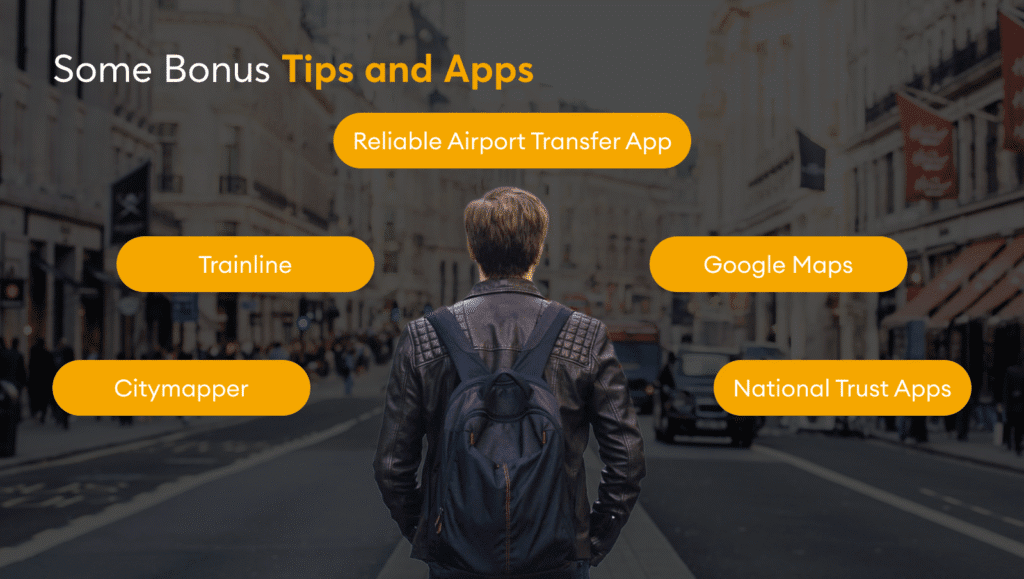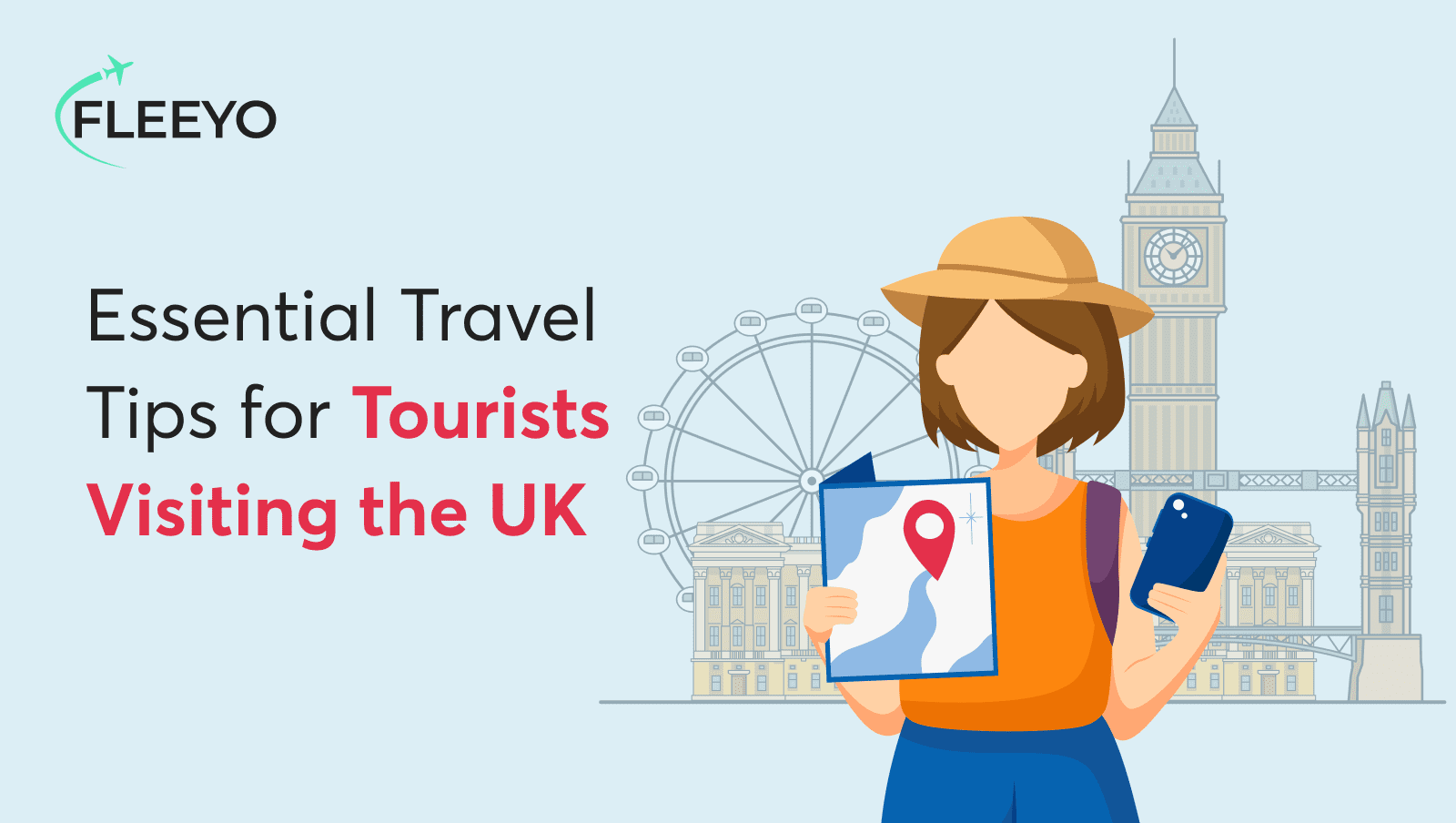Travelling to the UK for the first time? You’re in for an unforgettable journey through historic landmarks, vibrant cities, and scenic countryside. But arriving in a new country can feel overwhelming—especially when navigating airports, transport, and local customs. This guide covers everything you need to know before landing, including travel documents, airport transfers, safety tips, and transport options. Whether you’re visiting for leisure, study, or business, you’ll find practical travel tips to make your arrival smooth and your stay stress-free. From Heathrow to your hotel, get ready to explore the UK confidently—with smart planning and the right UK travel tips.
Table of Contents
ToggleBefore You Fly: Entry Rules & Visa Requirements
Before you are flying to UK, the very first travel tips that needs to kept in mind is:
Passport Validity
Ensure your passport doesn’t expire before you leave the UK. Some immigration officers prefer it to be valid for at least six months, even if not officially required.
Do You Need a Visa?
This depends on your country:
- Visa-free for 6 months: Citizens from countries like the USA, Canada, the EU, Australia, and Japan do not need a visa for tourism or short visits.
- Standard Visitor Visa: If you’re from India, China, Nigeria, or many parts of Africa or Asia, you’ll likely need a visa. Apply online early and carry printed proof of approval.
Always check the latest visa rules on the UK government website before booking your flight.
What to Expect at Border Control
Once you reach the UK, you must clear immigration.
Be ready to show:
- A valid passport
- Your return flight ticket
- Proof of hotel bookings or address of where you’re staying
- Purpose of your visit (tourism, business, etc.)
If you’re fully prepared, the process is quick.
Documents to Carry
- Printed hotel and tour bookings
- Return or onward travel tickets
- Verification of financial means through bank or travel card statements
- Travel insurance (highly recommended)
COVID-19 Rules (As of 2025)
- There are no mandatory tests or vaccine proofs required at the UK border.
- Some airlines may have their own safety guidelines.
Know About the Major UK Airports Before Travelling
Knowing your airport and other important airports can also be the best travel tips among others. Let’s have a look at some of the famous and major UK airports, which will help you to make the decision in the best possible way.
- Heathrow Airport, in West London, is the UK’s busiest, which serves global destinations with five terminals and fast access via the Tube and Heathrow Express.
- Gatwick Airport, located south of London, is ideal for European and long-haul travel, with the Gatwick Express taking you to central London in under 30 minutes.
- Luton Airport, north of the city, is known for budget flights and connects to London via shuttle and rail.
- Stansted Airport, northeast of London, serves low-cost airlines like Ryanair, with fast access through the Stansted Express.
- Birmingham, Manchester, Edinburgh, and Bristol airports offer regional gateways with direct road and rail links.
After You Land: How to Get into the City
Airports like Heathrow are large and can feel confusing. Once you’ve picked up your luggage, you’ll need to arrange transportation to your hotel or final destination.
Different Transportation Options
Travelling from UK airports to your destination offers several options depending on your budget, comfort, and convenience needs:
- Public trains like Heathrow or Gatwick Express offer fast, traffic-free journeys to central London in 15–20 minutes, ideal for light packers. However, tickets can be costly, and you’ll need extra transport to reach your final stop.
- Local buses and coaches, such as National Express, are budget-friendly with wide coverage but have longer travel times and less comfort—best for those familiar with UK transport.
- London Black Cabs and airport taxi ranks are licensed, available 24/7, and don’t need pre-booking, but they’re the priciest option, and fares vary with traffic.
- Airport shuttle buses are affordable and run on fixed routes, which is great for solo travellers, though journey times are longer due to multiple stops.
- Ride-Hailing Apps like Uber or Bolt offer cashless convenience and real-time tracking but may be subject to surge pricing and limited availability during off-peak hours.
- Private airport taxi transfers offer door-to-door service with fixed prices, flight tracking, and meet & greet—ideal for first-time visitors or those with luggage. Though slightly pricier, they provide peace of mind and a smooth arrival.
Exchanging & Spending Money

Currency & Exchange Tips
- The UK uses British Pounds (GBP). 1 pound equals 100 pence.
- Skip airport currency exchanges if you want better value for your money.
- Use ATMs with debit cards or exchange a small amount at reputable bureaus in the city.
Cards vs. Cash
- Cards Accepted Everywhere: From supermarkets to black cabs.
- Contactless is King: Tap-and-go payments under £100 are widely supported.
- Keep some cash for emergencies or rural areas.
Tipping Culture
- Restaurants: It’s customary to leave a 10–12% tip if a service charge hasn’t already been added to the bill.
- Taxis: You can round up the fare or leave a tip of around 5–10%.
- Hotels: £1–2 per bag for porters.
Local Customs & Culture
Understanding British etiquette and customs can make your trip smoother. Here’s a quick guide to travel tips in culture:
- British Etiquette: Politeness is key—expect frequent “Sorry”, “Please”, and “Thank you”. Queueing (waiting in line) is essential, and cutting in line is unacceptable. Small talk, mostly about the weather, is common.
- Language Differences: Some vocabulary differs from American English—chips = fries, crisps = potato chips, flat = apartment, and lorry = truck.
- Electrical Outlets: UK sockets require Type G plugs with three rectangular prongs. The standard voltage is 230V, so always carry a universal adapter.
Respecting these customs ensures a more comfortable, enjoyable UK experience!
Accommodation & Connectivity
For the best UK travel tips, consider these accommodation and connectivity tips:
- Accommodation: Options range from budget hotels to luxury B&Bs, and Airbnb offers great space for families or long stays. Book early, especially during holidays or near tourist areas. Choose locations near transport links to save time and money.
- Connectivity: Buy a pay-as-you-go SIM from providers like EE, O2, Vodafone, or Three for affordable plans, especially for short stays. Roaming might be costly without a UK data plan. Free Wi-Fi is common in cafes, public transport stations, and hotels.
Stay connected and comfortable as you explore the UK with the best travel tips!
Transportation Travel Tips
Use Public Transport Smartly
- The UK has an extensive network of buses, trains, and the London Underground.
- In London, use an Oyster card or contactless bank card for cheaper travel.
- For national travel, consider a BritRail Pass to save on multiple train journeys.
When to Rent a Car
- Ideal for exploring rural regions like the Lake District or Scottish Highlands.
- Remember: driving is on the left, and most cars are manual (stick shift).
Best Transport Apps
- Citymapper – real-time directions in cities.
- Trainline – train schedules and bookings.
- Google Maps – walking routes and live transit info.
- Uber/Bolt – quick and reliable taxi alternatives.
Extra Tip:
- For smooth airport pickups, book a private taxi in advance for comfort and ease.
Safety & Health
- The UK is a safe destination, but staying alert is wise.
- In an emergency, dial 999 for police, fire, or ambulance. For non-emergencies, call 101 (police) or 111 (health advice).
- NHS treatment isn’t free for tourists except in emergencies, so travel insurance is highly recommended.
- EHIC/GHIC holders may receive limited care. UK cities are generally safe, but watch for pickpockets in busy areas like central London and avoid quiet streets late at night.
- Stick to well-lit places and use trusted transport. Many travellers prefer pre-booked airport taxis for safe, stress-free arrivals—especially when landing late or after a long flight.
Bonus: Travel Hacks & Apps

Make your UK trip smoother and more budget-friendly with smart travel tips and tools. Start with must-have apps: Citymapper for real-time transport routes, Trainline for booking trains, Google Maps for walking and bus info, Uber/Bolt for quick rides, and the National Trust app to discover historic sites.
When packing, remember the UK’s unpredictable weather—opt for layers, bring a foldable umbrella, and wear comfy walking shoes for cobbled streets or countryside strolls.
Many top attractions like the British Museum and Tate Modern are free. Check VisitBritain or local tourism sites for 2-for-1 deals on tickets and travel cards. Free walking tours are also a great way to explore cities like Oxford and Edinburgh.
With a little planning, you’ll save money and time. And for a stress-free start? Book a private airport transfer—it’s reliable, 24/7, and gets you from arrivals to your hotel without the hassle.
Final Thoughts
Visiting the UK is more than sightseeing—it’s about experiencing history, charm, and vibrant culture. But after a long flight, navigating transport can be overwhelming. That’s why pre-booked airport taxis are a smart choice. Services like Fleeyo offer 24/7 availability, flight monitoring, fixed pricing, and a professional driver ready to meet you—even if your flight’s delayed.
Whether you land at Heathrow, Gatwick, or Manchester, taking into account the best UK travel tips ensures a smooth start to your trip. Ideal for solo travellers, families, or business guests, Fleeyo makes your arrival stress-free.
Travel with confidence—and let your UK adventure begin the right way.
Frequently Asked Questions
1. What do I need to know before visiting the UK for the first time?
Before visiting the UK, make sure your passport is valid, check visa requirements, and understand local customs such as queueing, tipping, and public transport use. Pack for unpredictable weather and plan airport transfers in advance to avoid last-minute stress.
2. How do I get from Heathrow Airport to central London?
You can travel from Heathrow to central London by Underground (Tube), express trains, airport buses, or pre-booked taxis. Each option has pros and cons, but many travellers prefer fixed-price private transfers for convenience, especially after a long flight.
3. Do I need travel insurance when visiting the UK?
Yes, travel insurance is highly recommended. The NHS does not offer free healthcare to most tourists, so insurance helps cover emergencies, illnesses, or trip disruptions.
4. What’s the best way to travel around the UK without a car?
Use trains for long-distance travel between cities and buses or local trains for short trips. For local navigation, apps like Trainline and Citymapper are helpful. For hassle-free airport transfers, pre-booked taxi services are a reliable option.
5. How much should I tip in the UK?
Tipping isn’t mandatory but is appreciated. In restaurants, 10–15% is standard if service isn’t already included. Tipping for taxis or hotel staff is optional but courteous.
6. Is it necessary to book airport transfers in advance in the UK?
It’s highly recommended, especially during peak travel times or if arriving late at night. Book airport transfers in advance ensures you avoid long queues and know your cost upfront.






